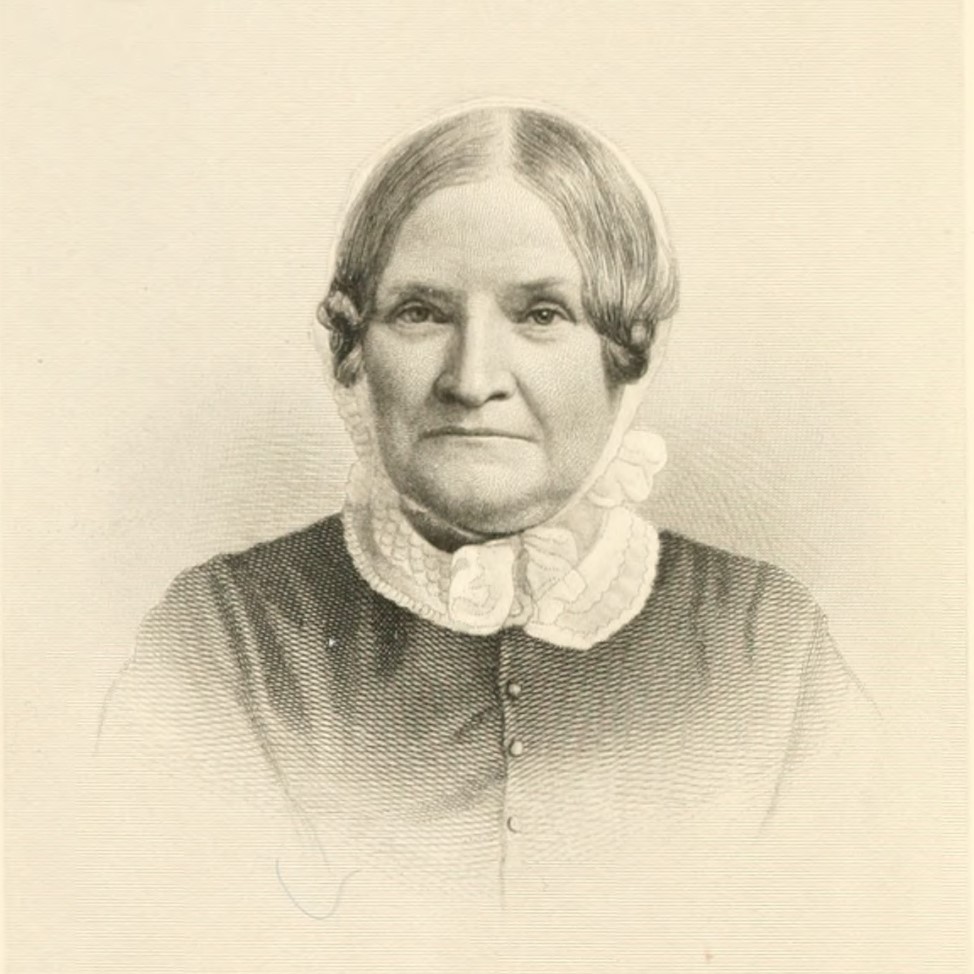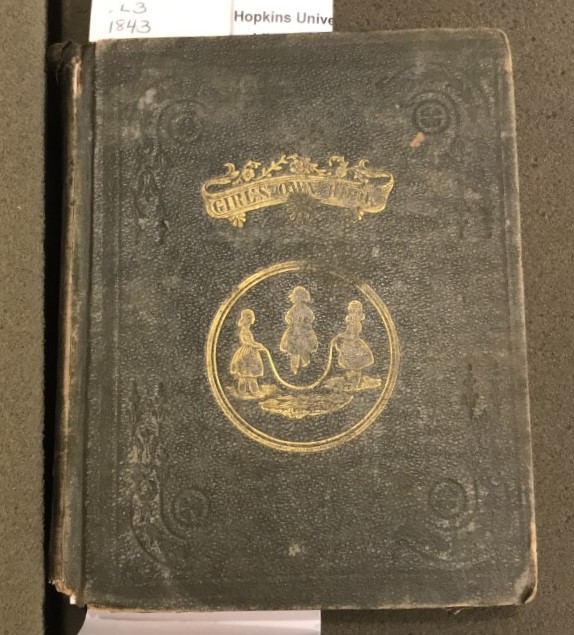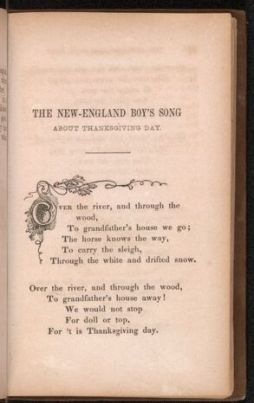We are observing this year in the U.S. the centennial of the passage of the 19th Amendment and celebrating all those who fought for suffrage. This “Scribbling Women” series of blog posts recognizes women who, in their speeches, private writings, and published poetry, fiction, and journalism, grappled with questions of freedom, justice, and rights—before, during, and after the concerted political effort to win the vote for women.
Posts in this series were written by undergraduate students in the spring 2020 Museums & Society class Scribbling Women: Gender, Writing, and the Archive. We used rare books, archival materials, and digital primary sources in the Sheridan Libraries’ collections to prompt and guide inquiries into the creation, reception, preservation, and legacy of texts from the 1820s through the 1930s by North American women who brought attention to race-, gender-, and class-based inequities. Through their short essays, bibliographies, and analyses of digital sources, students are providing to a broad audience accurate information about and appreciation for the “scribbling women” they studied. For more about our series title, please see the first post. For more about our public-facing work, please see our gallery of final projects and blog.
Today’s post is a bibliography compiled by Hayley O’Brion, a Writing Seminars major in the class of 2021. The creation of accurate online bibliographies was a key component of our class effort to make the works of these women writers better known and easier to read.

Biography
Lydia Maria Child (1802-1880) was a prolific American writer who had a profound influence in the nineteenth century and beyond. Born in Massachusetts, Child would grow up to be a strong proponent of abolitionism, Native American rights, and women’s rights. Although she is not as well known today as suffragists like Susan B. Anthony and Elizabeth Cady Stanton, “[Child] was renowned in her day as a tireless crusader for truth and justice and a champion of excluded groups in American society” (Poetry Foundation). Some of Child’s most prominent works addressed what she saw as the “social ills” of the century and included Hobomok, A Tale of Early Time; An Appeal in Favor of That Class of Americans Called Africans; and The History of the Condition of Women, in Various Ages and Nations.
In addition to her socially progressive works, Lydia Maria Child also wrote many popular books for a more domestic setting. Her books for women included cookbooks, a book on household first-aid, and an advice book for mothers, which addressed a growing need for reference books targeting middle- and working-class households. Through such publications, she “was able to influence the idea of what it meant to be American and an American wife and woman” (New-York Historical Society). Child also wrote entertaining and educational works for juvenile readers. In 1826, she established the first American bimonthly magazine for children, and throughout her life, she continued producing books such as A Girl’s Own Book and Flowers for Children. While they appealed to children through light verse and fun activities, they were also “focused on American values” and specially “suited to the children of a democratic republic” (Poetry Foundation). Thus, these pieces represent Child’s dedication to generating a distinctly American culture among children and young women in the early Republic.
Lydia Maria Child died in 1880 after publishing over 50 books, which were frequently reprinted throughout the nineteenth century, and a wealth of short stories, poems, and articles, which were frequently anthologized. This industry of republication made her work widely accessible for many decades. Below, I have listed some Child’s most significant publications for women and children. I have also provided some important later editions, secondary sources, and archival repositories, if anyone is interested in learning more.
BIOGRAPHICAL SOURCES
Poetry Foundation, New-York Historical Society Museum and Library, Britannica
First Editions
Child, Lydia Maria (An American Lady). Evenings in New England: Intended for Juvenile Amusement and Instruction. Boston, Cummings, Hilliard & Co., 1824. Text Link
—, editor. The Juvenile Miscellany. 1826-1834. Text Link
—. The Mother’s Book. Boston, Carter, Hendee and Babcock; Baltimore, Charles Carter, 1831. Text Link
—. The Frugal Housewife: Dedicated to Those Who Are Not Ashamed of Economy. Boston, Marsh & Capen, and Carter & Hendee, 1829. Text Link
—. The Girl’s Own Book. Boston, Carter, Hendee and Babcock, 1832?
—. Tales for Youth. Boston, L.C. Bowles and B.H. Greene, 1832. Text Link
—, and Massachusetts Medical Society. The Family Nurse; or, Companion of The Frugal Housewife. Boston, Charles J. Hendee, 1837. Text Link
—. Story of a Bird’s Nest. Boston, D. Lothrop & Co., 1880? Text Link
LADIES’ FAMILY LIBRARY COLLECTION (1832-1835)

From The History of the Condition of Women, Vol. II, by Lydia Maria Child. Boston: Otis, Broaders and Company, 1840. Via the Internet Archive / public domain.
—. The Biographies of Madame De Staël, and Madame Roland. Boston, Carter and Hendee, 1832 1832. 4 vols. Text Link
—. The Biographies of Lady Russell, and Madame Guyon. Boston, Carter, Hendee & Co., 1832. 4 vols.
—. Good Wives. Boston, Carter, Hendee and Co. and Allen and Ticknor, 1833. 4 vols. Text Link
—. The History of the Condition of Women, in Various Ages and Nations. Boston, John Allen & Co., 1835. 4 vols. Text Link
FLOWERS FOR CHILDREN COLLECTION (1844-1846)
—. Flowers for Children. Part I, For Children Eight or Nine Years Old. New-York, C.S. Francis & Co.; Boston, J.H. Francis, 1844. 3 vols. Francis and Co.’s Little Library. Text Link
—. Flowers for Children. Part II, For Children Four to Six Years Old. New-York, C.S. Francis & Co.; Boston, J.H. Francis, 1845. 3 vols. Francis and Co.’s Little Library. Text Link
—. Flowers for Children. Part III, For Children Eleven and Twelve Years of Age. New-York, C.S. Francis & Co.; Boston, J.H. Francis, 1846. 3 vols. Francis and Co.’s Little Library. Text Link
Selected Later Editions
THE MOTHER’S BOOK
—. The Mother’s Book. 6th ed., New York, C.S. Francis & Co., Boston, J.H. Francis, 1844.
—. The Mother’s Book. 9th ed., London, T. Tegg & Son, 1838. Text Link
THE FRUGAL HOUSEWIFE
—. The American Frugal Housewife: Dedicated to Those Who Are Not Ashamed of Economy. 16th ed., Boston, Boston, Carter, Hendee, & Co., 1835. Text Link
THE GIRLS’ OWN BOOK
—. The Girls’ Own Book. 1832? New York, Clark Austin & Co., 1833. Text Link
—. The Girl’s Own Book. 13th ed., Dublin, LeMessurier; Glasgow, Griffin; London, Tegg, 1844.
—. The Girl’s Own Book. 18th ed., London, William Tegg & Co., 1858. Text Link
LADIES’ FAMILY LIBRARY
—. Memoirs of Madame de Staël, and of Madame Roland. New, rev and enlarged ed., New York and Boston, C.S. Francis and Company, 1854. Francis & Co.’s Cabinet Library of Choice Prose and Poetry. Text Link
—. Biographies of Good Wives. 6th ed., New York, C.S. Francis and Company, 1855. Text Link
—. Brief History of the Condition of Women: In Various Ages and Nations. 5th ed., New York, C.S. Francis and Company, 1854. Francis & Co.’s Cabinet Library of Choice Prose and Poetry. Text Link
THE FAMILY NURSE
—, and Massachusetts Medical Society. The Family Nurse, or Companion of the American Frugal Housewife. 1837. Bedford, Applewood Books, 1997.
FLOWERS FOR CHILDREN
—. Flowers for Children. Omnibus ed., 1854, New York, C.S. Francis & Co.; Boston, J.H. Francis, 1854. Text Link
—. A New Flower for Children: For Children from Eight to Twelve Years Old. 1844-1846. New York, C.S. Francis, 1855. Text Link
Secondary Sources
BIBLIOGRAPHICAL INFORMATION
Baer, Helene G. The Heart Is Like Heaven: The Life of Lydia Maria Child. U Of Pennsylvania Press, 1964.
Holland, Patricia G. “Lydia Maria Child as a Nineteenth-Century Professional Author.” Studies in the American Renaissance, 1981, pp. 157-67.
Karcher, Carolyn L., and Lydia Maria Child. A Lydia Maria Child Reader. Duke University Press, 1997. Preview Link
—. The First Woman in the Republic: A Cultural Biography of Lydia Maria Child. Duke University Press, 1994. Preview Link
Klein, Lauren. “Lydia Maria Child and Archival Research.” New York Public Library, 12 June 2014, www.nypl.org/blog/2014/06/12/lydia-maria-child-research.
Linkon, Sherry L., editor. In Her Own Voice: Nineteenth-Century American Women Essayists. 1997. Routledge, 2018. Preview Link
Osborne, William S. Lydia Maria Child. Boston, Twayne, 1980.
Savant, Carroll Clayton. “The Destiny of Hope: The ‘Damned Mob’ of Women Activist Writers and the Indian Removal.” Feminist Resistance, www.sic-journal.org/ArticleView.aspx?aid=85.
Taylor, Lloyd C. “Lydia Maria Child: Biographer.” The New England Quarterly, vol. 34, no. 2, 1961, pp. 211–227. JSTOR.
—. To Make Men Free: An Interpretative Study of Lydia Maria Child. 1956. Lehigh University, dissertation.
ON CHILD’S WORKS FOR WOMEN AND CHILDREN
Hildegard Hoeller. “The Cost of the Gift: Gender and Labor in Lydia Maria Child’s Writings.” Legacy, vol. 34, no. 1, 2017, pp. 17–20. JSTOR, http://www.jstor.org/stable/10.5250/legacy.34.1.0017.
—. “A Quilt for Life: Lydia Maria Child’s The American Frugal Housewife.” American Transcendental Quarterly, vol. 13, no. 2, June 1999, pp. 89–104. EBSCOhost, http://search.ebscohost.com/login.aspx?direct=true&db=mzh&AN=1999020109&site=ehost-live&scope=site.
Husband, Julie. “Anticipating Progressive Era Reformers: Lydia Maria Child and the Mothering State.” ESQ: A Journal of Nineteenth-Century American Literature and Culture, vol. 50, no. 4 [197], 2004, pp. 283–314. EBSCOhost, doi:10.1353/esq.2004.0000.
Karen L. Kilcup. “Fostering the Future: Lydia Maria Child’s Environmental Engagements in The Juvenile Miscellany and Beyond.” Legacy, vol. 34, no. 1, 2017, pp. 13–16. JSTOR, http://www.jstor.org/stable/10.5250/legacy.34.1.0013.
Lord, Susan Toth. “Women’s History, Women’s Empowerment: Lydia Maria Child’s Ladies Family Library Series.” Womanhood in Anglophone Literary Culture: Nineteenth and Twentieth Century Perspectives, edited by Robin Hammerman, Cambridge Scholars Publishing, 2007, pp. 32–58. EBSCOhost, http://search.ebscohost.com/login.aspx?direct=true&db=mzh&AN=2009380685&site=ehost-live&scope=site.
Matter-Seibel, Sabina. “Native Americans, Women, and the Culture of Nationalism in Lydia Maria Child and Catharine Maria Sedgwick.” Early America Re-Explored: New Readings in Colonial, Early National, and Antebellum Culture, edited by Klaus H. Schmidt and Fritz Fleischman, Peter Lang Publishing Inc., 2000, pp. 411–440. EBSCOhost, http://search.ebscohost.com/login.aspx?direct=true&db=mzh&AN=2000057008&site=ehost-live&scope=site.
Taketani, Etsuko. “The ‘Omnipresent Aunt’ and the Social Child: Lydia Maria Child’s Juvenile Miscellany.” Children’s Literature: Annual of The Children’s Literature Association and The Modern Language Association Division on Children’s Literature, vol. 27, 1999, pp. 22–39. EBSCOhost, http://search.ebscohost.com/login.aspx?direct=true&db=mzh&AN=1999004300&site=ehost-live&scope=site.
Special Collections Holdings
First and early editions of Lydia Maria Child’s books are collected by numerous U.S. libraries; for a partial listing, see my original post. Researchers can also consult original letters, manuscripts, and other materials in several archival collections: the Lydia Maria Child Papers in the Schlesinger Library on the History of Women in America, Radcliffe Institute, Harvard University, the Lydia Maria Child Papers in the Columbia University Libraries, and the Lydia Maria Child Papers in the Clements Library, University of Michigan.

Cover of Lydia Maria Child, Girl’s Own Book (New York: Edward Kearney, 1843). From the Sheridan Libraries, Johns Hopkins University. Photograph by Hayley O’Brion.
Adaptations
Lydia Maria Child’s poem “The New-England Boy’s Song About Thanksgiving Day” (found in Volume II of Flowers for Children) was adapted into the popular song now known as “Over the River and Through the Woods.” You can read more about her poem here, and you can see its original verse here. The poem was adapted into a children’s picture book in 1974, with new editions still coming out today.

—, and Brinton Turkle. Over the River and Through the Wood. New York, Coward, McCann & Geoghegan, 1974.
—, and Christopher Manson. Over the River and Through the Wood. New York, North-South Books, 2019.
To read more Lydia Maria Child
LibriVox, Internet Archives, Gutenberg Texts, Online Books Library
